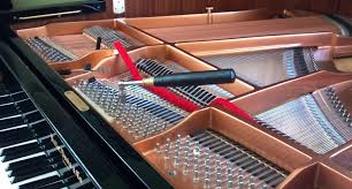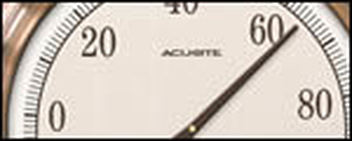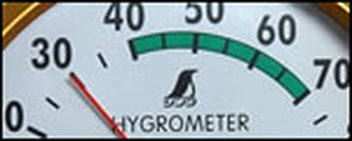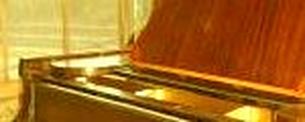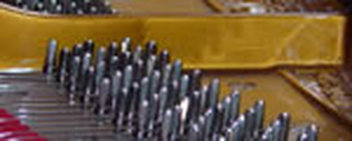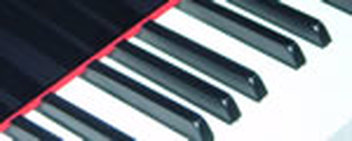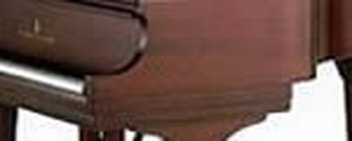How to care for your piano
PIANO TUNING
|
Twice a year is usually a good interval for tuning a piano. During periods in which a piano gets very little or no use, it is still advised to tune it at least once a year. It will keep the piano on pitch and regular service will ensure that all mechanical parts work properly. Newly strung pianos (including new pianos and newly rebuilt pianos) should be tuned more often during the first year.
One of the advantages of getting a fully prepared piano from Allegro Pianos is that we stabilize and tune our pianos several times in the showroom and prior to delivery. A good preparation usually results in a trouble free acclimating period. If this process is not properly done by the piano dealer, such as in case a piano is delivered directly from a warehouse to a customer, the stabilization period is usually much longer and more tunings are needed, especially for a new or a newly strung piano, during the course of the first couple of years. |
PIANOS AND TEMPERATURE
|
Luckily, pianos feel good in environments that are comfortable for most people.
Room temperatures of low to mid 70's in the summer and mid to upper 60's in the winter are ideal but unless pianos are exposed to extreme heat of above 90 degrees, or close to freezing cold temperatures under 38 degrees, for extended periods of time they are not likely to be damaged. Remember, quality pianos are built to withstand years of use and adapt to many different environments. In the past, pianos survived rather well without the benefits of air conditioning systems and used to being exposed to much harsher overall conditions. |
PIANOS AND HUMIDITY
|
Ideally, a piano will be maintained in a room in which the relative humidity remains constant year round. In a varied climate found in the US Northeast, the relative humidity should be kept in the 30% - 40% in the winter and 40% -50% range during the summer.
There are several options to maintain pianos in good relative humidity with little effort. When visiting Allegro Pianos our expert team can advise and offer easy solutions for your particular situation. Generally speaking with a focus on pianos in the North Eastern US, air conditioners can be useful as they dehumidify the air during the summer. Extremes of humidity as well as large changes in humidity are both harmful to pianos. A simple and inexpensive piano climate control system such as a Dampp Chaser is a piano life saver and can also be very effective for year round use. Some prefer to maintain the whole house or use room humidifiers to avoid the winter's dry air benefiting their pianos seamlessly. |
PIANO AND SUNLIGHT
|
Some piano finishes are much more durable than others. Some will fade even in indirect sunlight while others will not be affected at all. Direct sunlight is usually not good for any piano and while it harms certain piano finishes (causing these to bleach and to crack) but not others, the heat caused by direct sunlight destabilizes the piano interior.
However, there are a number of ways to protect a piano that is placed nearby a window including areas that are exposed to plenty of sunlight. When visiting Allegro Pianos, our expert team can offer advice based on your particular situation and intended piano placement. We usually have solutions that allow customers to place a piano almost anywhere in your home without risk of damage. |
PIANO FURNITURE |
Polished finishes are usually much stronger, durable and easy to care for. Before cleaning with a cloth, remove dust from the piano using a feather duster. Finger prints can be cleaned easily with a soft cloth that is slightly moist using circular movements.
There is rarely a need for any furniture polish although some piano cleaning and polishing products are available. Do not use any cleaners containing ammonia on any piano finishes. Satin finishes are softer, more easily damaged and harder to care for. To remove smudges, use a soft clean cheesecloth or an old clean cotton tee shirt (with the seams removed). Spray a small amount of water (or ammonia free Windex if necessary) onto the cloth and then rub the smudged area in the direction of the grain. Do not rub across the grain and do not apply fluid directly to the piano. Avoid using the piano lid as a display surface. In particular, never place a vase containing water or wet soil on the piano. Furniture polish should never be used on a new finish. To liven up an older finish use "Guardsman" furniture polish, but only occasionally. |

